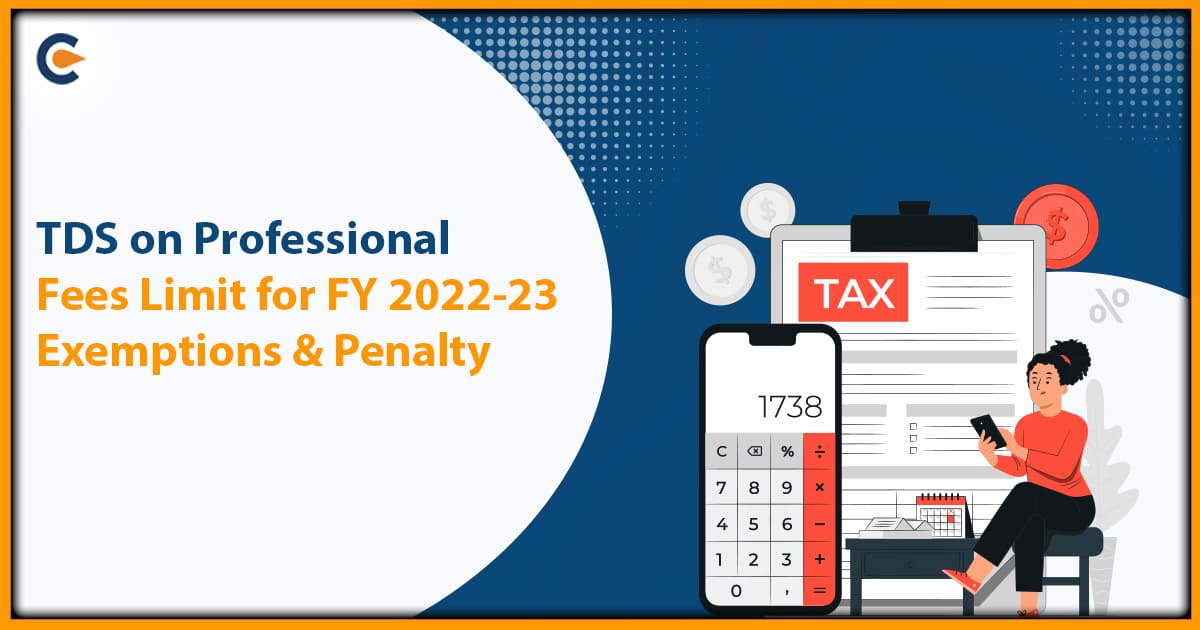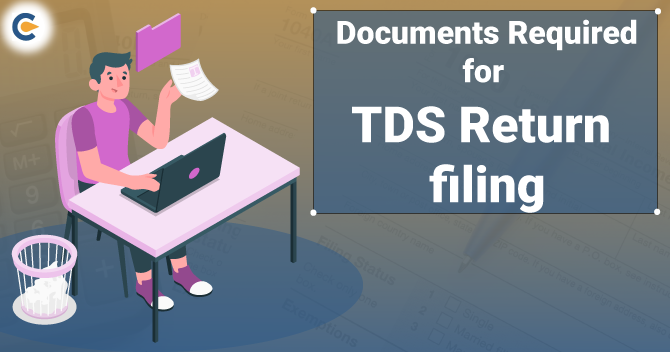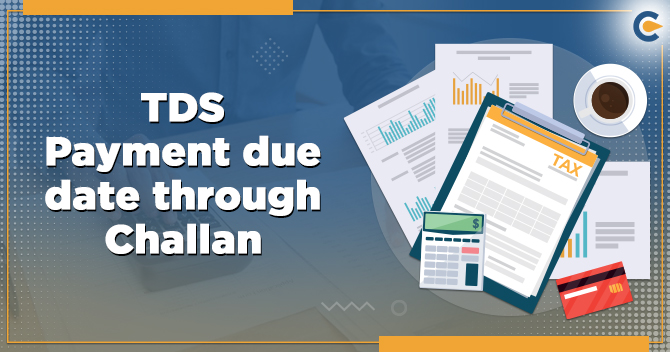Tax Deducted at Source (TDS) is a mechanism implemented by the Indian government to collect taxes at the source of income generation. It ensures that a certain percentage of tax is deducted by the payer while making specified payments to the payee. One such payment category is professional fees, which includes payments made to professionals such as lawyers, doctors, consultants, architects, and other skilled individuals.
TDS on professional fees is applicable when a payment is made for professional services rendered. The person or entity making the payment, known as the deductor, is responsible for deducting the applicable TDS amount and depositing it with the government. The purpose of TDS on professional fees is to ensure that the government receives its due tax revenue in a timely manner and to prevent tax evasion. By deducting the tax at the source, the government can collect taxes throughout the year instead of relying solely on the taxpayer’s annual filing. The rate at which TDS is deducted on professional fees may vary depending on the nature of the payment, the total amount paid during the year, and the tax residency status of the payee. The deductor must adhere to the TDS provisions specified by the Income Tax Act and deduct the appropriate amount of tax.
It is important for both the deductor and the payee to understand their respective roles and responsibilities in relation to TDS on professional fees. The deductor must ensure timely deduction, deposit, and reporting of TDS, while the payee must provide the necessary details and documentation to facilitate the deduction process. Failure to comply with TDS provisions can result in penalties and legal consequences for the deductor. It is essential to stay updated with the latest regulations and seek professional advice if needed to ensure compliance with TDS on professional fees. By doing so, both the deductor and the payee can fulfil their obligations and contribute to the effective functioning of the tax system.
TDS Limits for Professional Fees in FY 2022-23
For the financial year 2022-23, the Indian government has set specific limits for TDS on professional fees. These limits determine whether TDS needs to be deducted on such payments and at what rate. Let’s explore these limits in detail:
- Individual and HUF (Hindu Undivided Family)
- If the professional fee payment made during the year exceeds Rs. 50 lakhs, TDS must be deducted at a rate of 5%.
- If the payee has not provided a valid Permanent Account Number (PAN), TDS must be deducted at a higher rate of 20%.
- Other Assesses (including companies)
- If the professional fee payment made during the year exceeds Rs. 50 lakhs, TDS must be deducted at a rate of 2%.
- If the payee has not provided a valid PAN, TDS must be deducted at a higher rate of 20%.
It is important for deductors to carefully monitor the cumulative professional fee payments made to an individual or entity throughout the year. If the total payment exceeds the specified threshold of Rs. 50 lakhs, TDS must be deducted accordingly. The deductor must ensure that the appropriate TDS rate is applied based on the payee’s PAN availability.
In case the payee has not provided a valid PAN, a higher TDS rate of 20% must be applied regardless of the payment amount.
Compliance with these TDS limits is crucial to avoid penalties and ensure adherence to the tax regulations. Deductors should maintain accurate records and diligently deduct and deposit the TDS amount with the government within the prescribed timelines.
It is advisable for both deductors and payees to consult with a tax professional or refer to the latest guidelines issued by the Income Tax Department to stay informed about any updates or changes in the TDS limits for professional fees. By doing so, they can ensure compliance with the applicable TDS rates and contribute to a transparent and efficient tax system.
Exemptions from TDS on Professional Fees
TDS (Tax Deducted at Source) on professional fees is a significant component of tax compliance in India. However, there are certain exemptions available where TDS on professional fees may not be applicable. Let’s explore some of the common exemptions:
- Tax Audit under Section 44AB
- Professionals who are subject to tax audit requirements under Section 44AB of the Income Tax Act, 1961, are exempted from TDS on professional fees. Tax audit is mandatory for professionals whose gross receipts exceed the threshold specified in the Act. If the professional falls under this category, the deductor is not required to deduct TDS on the professional fees paid to them.
- Payments to professionals located outside India
- If professional services are rendered outside India, and the payee does not have a permanent establishment within India, TDS on professional fees may not be applicable. This exemption is relevant when the services are entirely provided and utilized outside the boundaries of India.
- Specific exemptions by CBDT
- The Central Board of Direct Taxes (CBDT) has the authority to issue notifications granting exemptions from TDS on professional fees to specific professionals or categories of professionals. These exemptions may be provided based on certain conditions or criteria set by the CBDT. Deductors should refer to the relevant CBDT notifications to determine whether any exemptions apply to their specific case.
It is crucial for deductors to understand and ensure that they meet the conditions prescribed for availing these exemptions. Proper documentation and records should be maintained to substantiate the claim for exemption, if required.
It is important to note that the availability of exemptions may vary based on the specific provisions of the Income Tax Act and the prevailing regulations. Deductors and payees are advised to consult with tax professionals or refer to the latest guidelines issued by the income tax authorities to stay updated on any changes or additions to the exemptions from TDS on professional fees.
By being aware of these exemptions, deductors can accurately determine when TDS on professional fees is not applicable, reducing their compliance burden. Payees can also communicate their eligibility for exemption to the deductors, ensuring smooth financial transactions and minimizing unnecessary TDS deductions.
Penalty for Non-compliance with TDS on Professional Fees
Non-compliance with TDS provisions related to professional fees can lead to penalties and consequences for the deductor. It is important for deductors to fulfill their TDS obligations to avoid such penalties and maintain compliance with tax regulations. Let’s explore the penalties associated with non-compliance:
- Interest on Late Payment
If a deductor fails to deduct TDS on professional fees or deducts it at a lower rate, they may be liable to pay interest on the outstanding TDS amount. The interest is calculated from the date on which the TDS should have been deducted until the date of actual deduction. The current rate of interest is 1% per month or part thereof.
- Interest on Late Deposit
In addition to interest on late payment, if the deductor fails to deposit the deducted TDS amount with the government within the prescribed timeline, they may also be liable to pay interest. The interest is calculated from the date of deduction until the date of deposit and is charged at the rate of 1% per month or part thereof.
- Penalty for Non-deduction or Lower Deduction
If a deductor fails to deduct TDS on professional fees or deducts it at a lower rate than required, they may be subject to a penalty. The Assessing Officer has the authority to levy a penalty equal to the amount of TDS that should have been deducted but was not.
It is important to note that the penalty mentioned above is in addition to the interest charges. The penalty amount is determined based on the specific circumstances of non-compliance and is subject to the discretion of the Assessing Officer.
To avoid penalties and consequences, deductors should ensure timely and accurate deduction of TDS on professional fees, as well as the deposit of the deducted amount with the government. It is advisable to maintain proper records and documentation to substantiate the TDS deductions and comply with the reporting requirements. Deductors should also stay updated with the latest regulations and guidelines issued by the income tax authorities to ensure compliance with the TDS provisions related to professional fees.
Steps to Ensure TDS Compliance for Professional Fees
Ensuring TDS (Tax Deducted at Source) compliance for professional fees is crucial for deductors to meet their tax obligations and avoid penalties. Here are some important steps to follow to ensure TDS compliance:
- Identify Applicability
Determine whether TDS is applicable on the professional fee payment based on the provisions of the Income Tax Act, the nature of the payment, and the threshold limits set for TDS on professional fees.
- Obtain PAN
Ensure that the payee (professional) has provided a valid Permanent Account Number (PAN). It is mandatory for deducting TDS. If the payee does not have a PAN or has provided an incorrect PAN, consider applying a higher TDS rate of 20%.
- Determine TDS Rate
Calculate the appropriate TDS rate based on the nature of the payment, the total amount paid during the year, and the tax residency status of the payee. Refer to the relevant sections and provisions of the Income Tax Act or consult with a tax professional for accurate determination.
- Deduct TDS
Deduct the applicable TDS amount from the professional fee payment at the prescribed rate. Ensure that the deduction is done at the time of credit or payment, whichever is earlier.
- Timely Deposit
Deposit the deducted TDS amount with the government within the prescribed timeline. Use the challan forms and modes specified by the income tax authorities for depositing TDS. Late deposit may attract interest charges.
- File TDS Returns
File TDS returns on time, providing details of the professional fee payments, TDS deducted, and other relevant information. Use the appropriate forms, such as Form 26Q, for reporting TDS on professional fees.
- Issue TDS Certificates
Provide TDS certificates, such as Form 16A, to the payees within the specified timeframe. These certificates serve as proof of TDS deduction and can be used by payees for their tax filings.
- Maintain Documentation
Keep proper records and documentation related to TDS compliance, including payment details, PAN information, TDS deduction certificates, and TDS deposit receipts. These records will be useful during audits or if any clarifications are required.
- Stay Updated
Regularly monitor changes and updates in TDS provisions, rates, and reporting requirements. Stay informed about any notifications or circulars issued by the income tax authorities to ensure compliance with the latest regulations.
- Seek Professional Advice
If you are unsure about any aspect of TDS compliance for professional fees, seek assistance from a qualified tax professional or consult with a chartered accountant. They can provide guidance, help with accurate calculation and compliance, and ensure adherence to the TDS provisions.
By following these steps, deductors can ensure TDS compliance for professional fees, mitigate risks of penalties, and contribute to a transparent and efficient tax system.
Seeking Professional Assistance for TDS Compliance Top of Form
Complying with TDS (Tax Deducted at Source) requirements for professional fees can be complex, and the ever-changing tax regulations can make it challenging for deductors to stay updated. Seeking professional assistance can be highly beneficial to ensure accurate and hassle-free TDS compliance. Here are some reasons why you should consider seeking professional assistance:
- Expert Knowledge
Tax professionals, such as chartered accountants or tax consultants, possess in-depth knowledge of tax laws and regulations. They stay updated with the latest changes and can provide accurate guidance on TDS compliance for professional fees.
- Compliance Assurance
Professionals experienced in TDS compliance can help ensure that all legal requirements are met. They will guide you through the process, ensuring proper calculation of TDS, timely deposit, accurate filing of returns, and issuance of TDS certificates.
- Avoiding Errors and Penalties
Professionals can help minimize errors in TDS calculations, preventing under-deduction or incorrect rates. They can also ensure timely deposit, reducing the risk of interest charges or penalties for non-compliance.
- Up-to-date Information
Tax professionals have access to the latest updates and notifications issued by the income tax authorities. They can provide insights on any changes in TDS rates, thresholds, exemptions, and reporting obligations, helping you stay compliant.
- Record-keeping and Documentation
Maintaining proper records and documentation is essential for TDS compliance. Tax professionals can guide you on the required documentation, assist in organizing records, and help you prepare for tax audits or inquiries.
- Risk Mitigation
Professionals can help identify potential risks or non-compliance areas and provide proactive solutions. Their expertise minimizes the chances of errors, penalties, and disputes with tax authorities.
- Time and Resource Savings
TDS compliance can be time-consuming, especially for businesses with numerous transactions. Engaging professionals allows you to focus on your core activities, while they handle the complex aspects of TDS compliance.
- Advisory Services
Tax professionals can offer valuable advice on tax planning, optimizing TDS deductions, and managing overall tax liabilities. They can assist in identifying opportunities for tax savings and ensuring efficient tax management.
Remember to choose a reputable and experienced tax professional or firm to assist with TDS compliance. Verify their credentials, expertise, and track record before engaging their services. Regular communication and collaboration with the professional will ensure smooth compliance and keep you updated on any changes in TDS regulations.
Conclusion
In conclusion, TDS on professional fees is an important tax compliance requirement in India. Deductors must deduct the applicable TDS amount and deposit it with the government to ensure timely tax collection. The TDS rates for professional fees in FY 2022-23 are 5% for individuals/HUFs and 2% for other assesses if the payment exceeds Rs. 50 lakhs. Non-compliance with TDS provisions can result in penalties, including interest charges and monetary penalties. There are exemptions available for certain professionals, such as those subject to tax audit or providing services outside India. Seeking professional assistance can help ensure accurate TDS compliance, minimize errors, and stay updated with the latest regulations.
Read our Article: Section 194J: TDS On Professional Or Technical Fee











